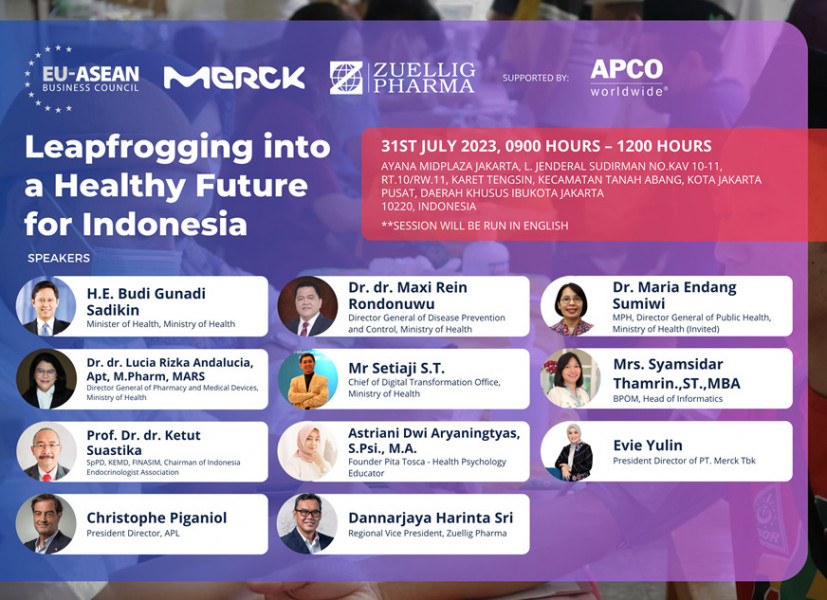The aftermath of COVID-19 showed that health systems need to be strengthened significantly to be resilient from pandemic shocks. The pandemic challenged health systems and shone a light on a multiplicity of health challenges worldwide – ranging from underserved population groups, lack of accessibility to and affordability of healthcare services, to enhancing resilient supply chains and achieving safe and efficient healthcare delivery. Indonesia is no exception. Part of the Republic’s ongoing efforts to reform the healthcare system includes extending equal access to health in all regions of Indonesia, achieving universal healthcare coverage, promoting health-seeking behaviours that advances good health and disease prevention, expanding and standardising integrated health services to increase the outreach of primary healthcare.
The administration has committed 88.5 trillion Rupiah to health transformation in 2023. This is a clear show of political will to strengthen the Indonesian health system. Additionally, by harnessing a digital health ecosystem platform that creates new ways to overcome obstacles in enhancing health provision beyond the hospital walls across the country, Indonesia is making significant headway in transforming its health system. This bridges significant healthcare service delivery gaps across the archipelago and brings Indonesia one step closer to expanding health coverage to be more inclusive, achieving an equitable health system.
Join us in this discussion to uncover how deepening public-private partnerships can bolster the country’s capacity to realistically achieve health transformation, strengthen digital health infrastructures and resiliency of supply chains, ensure the affordability and accessibility of healthcare services to everyone everywhere, promote healthier lifestyles and empower Indonesian citizens to take ownership of their health to build a Healthier Indonesia for all.

